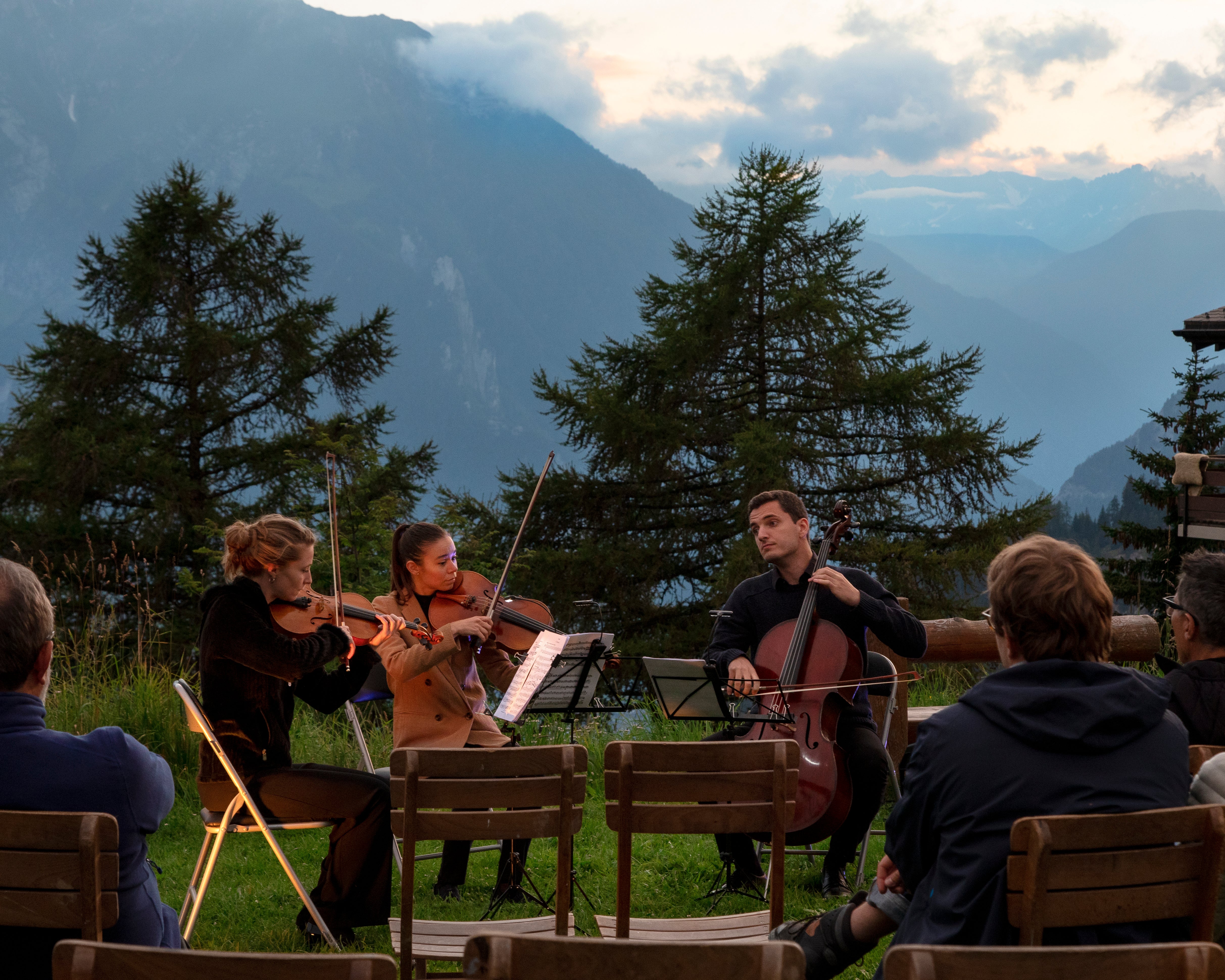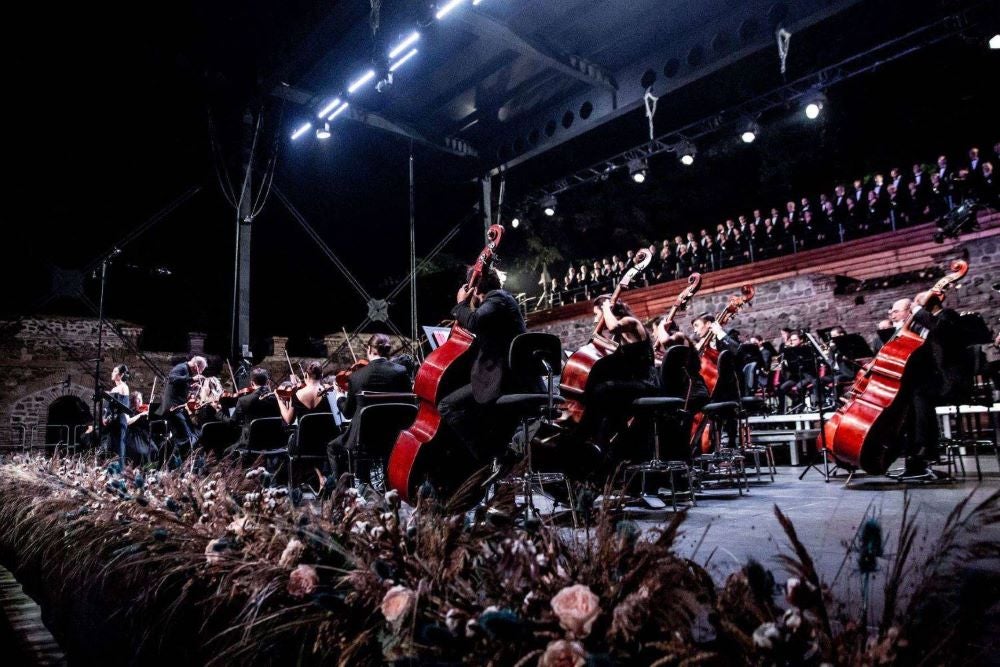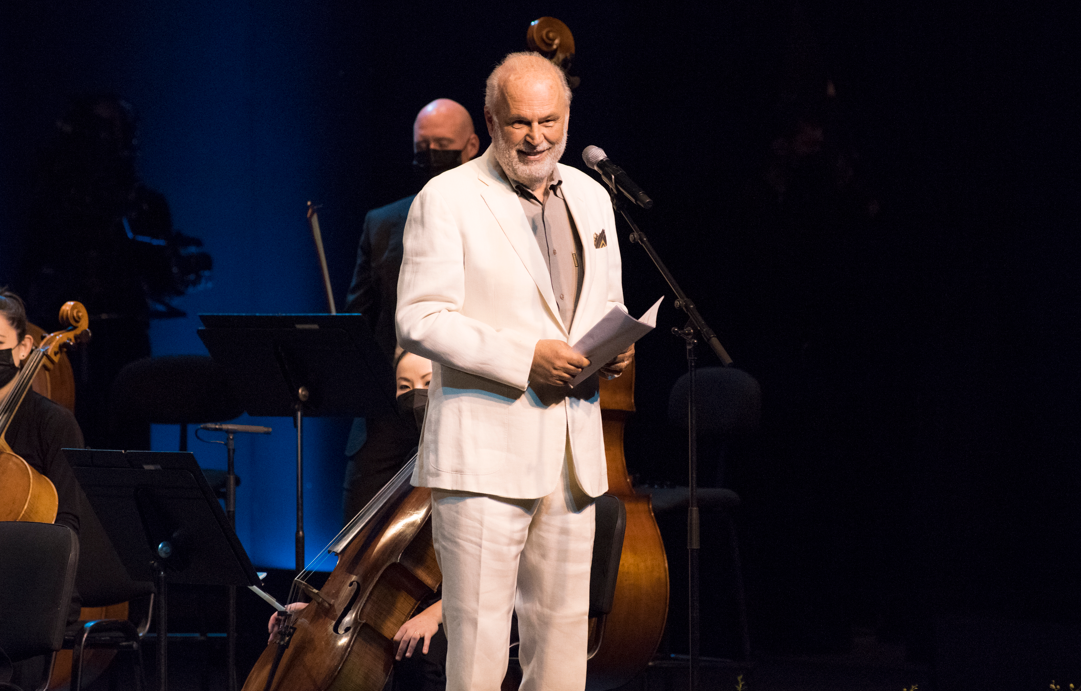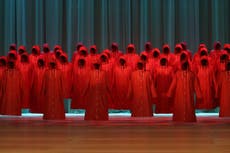How European classical music festivals are coping with a world in crisis
War, the cost of living and Covid-19 have presented classical music festivals in Europe with a series of challenges. Michael Church talks to impresario Martin Engstroem about how he’s keeping the music playing

Classical music festivals are financially risky at the best of times. The ongoing political and economic uncertainty – plus the impact of the pandemic – means they’ve never been riskier. Those with the best chance of survival are based in big cities. The geographical locations for the three summer festivals which Martin Engstroem has created could hardly be more challenging.
But this Swedish impresario has always lived dangerously. Quitting his safe job as artistic boss of the record company Deutsche Grammophon, he set up his first festival 30 years ago in what was then an unassuming little ski resort called Verbier, in the high Swiss Alps. As he said at the time, he liked the idea of combining performances and partying on top of a mountain. But as he had access – through Deutsche Grammophon – to a glittering roster of famous musicians, the affair acquired such cachet that everybody who was anybody in the world of classical music wanted to be there.
Four years ago, working on Verbier principles but on a smaller scale, Engstroem launched two further festivals, the first of which was on the shores of the Baltic in Riga. Latvia is a small country, and Engstroem wanted to help boost its international profile: he wanted people to remember that in the 18th century, Riga was Latvia’s biggest city, even dwarfing Stockholm. The Riga festival did well, but when Russia invaded Ukraine it ground to an immediate halt: most of its backers were Russians, and no EU country could touch their now tainted money. Riga, moreover, is in serious danger of being drawn into the war.
The other new festival is in Georgia, on the beautiful Tsarist estate of Tsinandali in the centre of Georgia’s verdant wine country. Georgia too has had problems since breaking free of the Soviet yoke, with a small but nasty civil war in the Nineties, and Putin’s abortive invasion in 2008. And in the last four months, Georgia has absorbed a big influx of refugees from Russia.
“Making a festival is nice,” says Engstroem, “but there always needs to be something more to it than concerts. And when I looked at Georgia on the map, I realised that all the countries surrounding it were problematic areas, and in some cases at war with each other.” Turkey vs Armenia, Armenia vs Azerbaijan, and Russia vs almost everybody. Engstroem realised that, with his musical contacts, he could create a youth orchestra as he had in Verbier, drawing on talent from each of those countries – hence the now-flourishing Pan-Caucasian Youth Orchestra, consisting of music students aged 15-28, which is now in its fourth year. This, says Engstroem, has given the festival its raison d’etre.
The Tsinandali programme, which lasts from 2-11 September, will feature performances by many of the musical stars from Verbier, but guests at the festival will have ample opportunity to savour the unique tourist pleasures this country has to offer. Climate-wise, it spans hot deserts and mountains which are snowbound for half the year; its Turkish-influenced gastronomy is addictive, and the choral singing in its many historic churches is Georgian polyphony in its purest form.

Meanwhile, the war in Ukraine has even touched Verbier, in that the Russian conductor Valery Gergiev, long one of the festival’s leading deities, has had to be fired. His provocative support for Putin over many years has made him a pariah in the world of classical music, and his presence on the rostrum – usually guaranteed to sell tickets – would now be guaranteed to empty the auditorium.
The attractions of this festival, running from 15-31 July, go far beyond the fact that it offers close-up performances by Evgeny Kissin, Martha Argerich, and Yuja Wang, the three most sought-after pianists in the world. As these events take place in a tent, it’s always possible that a summer storm may interrupt business, but that’s just part of the fun.
Engstroem’s vision went way beyond the usual “preserve of the rich” festival stereotype (though there are now a lot of very rich people in Verbier). He induces his stars to take artistic risks, using Verbier as a laboratory rather than a mere showcase. He has decreed that masterclasses should take place in venues around town from dawn ’til dusk, and that these should be open to all, free of charge. He’s invited jazz groups to serenade the public in the central square each afternoon.

Over the years, the festival has also acquired a plethora of events going under the title “Unlimited”, which means whatever the performers want it to mean. This year the nicest of these sounds to be the “musical guided walks” on which the participants will be serenaded by young musicians at selected points along their mountain path. Other Unlimited curiosities include cabaret concerts and un-programmed “surprise” appearances by normally reclusive stars (perhaps Kissin? Argerich? Wang?).
The normal festival pattern is for the global stars to jet in one day and out the next, with security guards keeping the public from any contact with performers. Engstroem insists on the reverse, with players and listeners mingling in an informal commune. And he stresses the fact that while there are four ticketed events per day, there are dozens which are free: last year, he says, 15,000 people came to the festival without buying tickets.
“I was always looking for another name for the ‘festival’, because that word is so misused,” he says. “Something that implied a happening, an atmosphere. Something that implied the pilgrimage you have to make to get here, because it’s not a through-town. It’s at the end of the road, and it takes a big effort to get here. But once you arrive, you really are in a different world.” And that’s exactly how it feels, here on the top of the mountain.
Tsinandali Festival runs 2-11 September 2022
Verbier Festival is 15-31 July 2022



Join our commenting forum
Join thought-provoking conversations, follow other Independent readers and see their replies
Comments